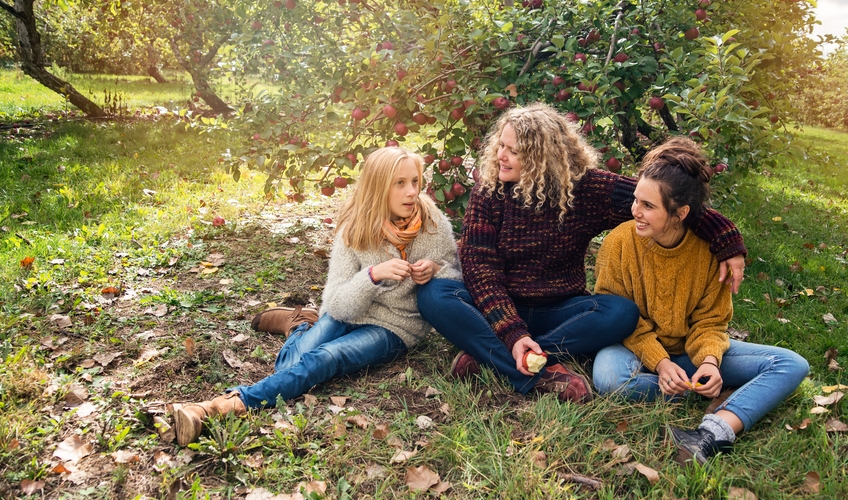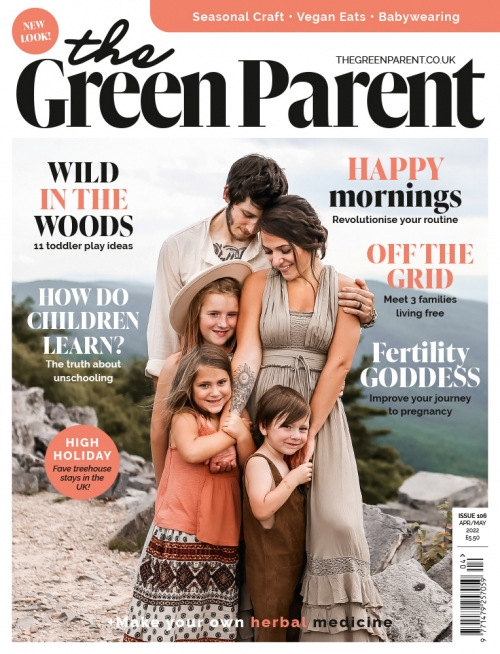Apple Day, 21 October was launched in 1990 by Common Ground. The aspiration was to create a calendar custom, an autumn holiday. From the start, Apple Day was intended to be both a celebration and a demonstration of the variety we are in danger of losing, not simply in apples, but in the richness and diversity of landscape, ecology and culture too. It has played a real part in raising awareness of the provenance and traceability of food.
The success of Apple Day has shown what the apple means to us and how much we need local celebrations in which, year after year, everyone can be involved. In city, town and country, Apple Day events have fostered local pride, celebrated and deepened interest in local distinctiveness. Apple Day is now an integral part of the calendar of many villages, local authorities and city markets. It is a focus for activities organised by the Women’s Institute, National Trust properties, Wildlife Trusts, museums and galleries, horticultural societies, shops and restaurants as well as for schools, colleges and environmental study centres.
The first Apple Day celebrations, in the old Apple Market in London’s Covent Garden, brought fruit to the market after 16 years’ absence. Forty stalls were taken. Fruit growers and nurseries producing and selling a wide variety of apples and trees rubbed shoulders with juice-and cider-makers, as well as writers and illustrators with their apple books.
Representatives of the WI came laden with chutneys, jellies and pies. Mallorees School from North London demonstrated its orchard classroom, while the Hertfordshire & Middlesex Wildlife Trust explained how it manages its orchard for wildlife. Marks & Spencer helped to start a trend by offering tastings of some of the 12 ‘old varieties’ they had on sale that autumn. Organic growers were cheek by jowl with beekeepers, amidst demonstrations of traditional and modern juice presses, a calvados still and a cider bar run by the Campaign for Real Ale. Experts such as Joan Morgan identified apples and offered advice, while apple jugglers and magicians entertained the thousands of visitors – far more than expected – who came on the day.
For two weeks before Apple Day, in a marquee on the Piazza, Common Ground exhibited the photographs of West Country Orchards we had commissioned from James Ravilious alongside a display of more than 100 different apple varieties. People were amazed at the diversity of shapes, sizes and colours. Lunchtime tastings were offered of some of the varieties on show, and many people bemoaned the lack of such choice on supermarket shelves.
And so the tradition of Apple Day began. Over the next few years, the number of events being organised around the country grew from more than 60 in 1991 to 300 by 1997 and over 600 in 1999, some attracting thousands of people. Apple Day has played a part in raising awareness not only of the importance of orchards to our landscape and culture, but also in the provenance and traceability of food. It has been one impetus behind the developing network of farmers’ markets and is helping people everywhere to discover they are not alone in valuing the links between food and the land, between natural resource use and the impact we have on nature.
The apple can be seen as a symbol of what is being lost in many aspects of our lives and shown that anyone can take positive action towards change. Over the years, Apple Day has been celebrated in a wonderful variety of ways by a diverse range of people. Doctors’ surgeries, coronary support groups, and the Cancer Research Campaign have taken Apple Day as a novel way of encouraging healthy eating. Each year, alongside tasting, juicing, baking, pruning and grafting, an imaginative array of games and creative activities have flourished – ranging from simple apple printing to mummers’ apple plays, new songs and poetry evenings. But invariably, year after year, the most popular event is the display, tasting and buying of numerous varieties of apples and the presence of an expert to aid identification.
1) Borough Market’s acclaimed Apple Day celebration will take place on 23rd October in Three Crown Square and Green Market from midday. Apple Day is a lively family festival held in honour of the annual harvest; apple growers, traders and producers will be on hand to share their knowledge and enthusiasm, offering visitors the chance to sample an array of apple varieties, along with limited edition products such as preserves, breads, pies and juices.
2) Celebrate Apple Day on 23 October at Oxburgh Hall in Norfolk by discovering the importance of heritage apples and orchards in Britain. The East of England Apple & Orchards Project will be on hand to offer expert advice, as well as the Master Gardeners’ Association, Cockley Cley Wood Turners, Riverford Organics, willow basket makers and a spinner. Bring your own apple and pear varieties and have them identified or made into juice. Families can enjoy apple themed activities and tuck into the apple recipes on the menu in the tea-room.
3) At Cefn Ila, nr. Usk there’s lots to do for the Apple Day celebration on 23 October. Bird box making, apple ID, beekeepers at work, bug hotel workshop, apple games, live music and food. Bring apples for ID and to bake on the camp fire.
4) Celebrate the apple at the Community Orchard in Great Linford, nr. Milton Keynes on Sunday 23rd October, 2016. Bring along some apples to press and make juice, you’ll need a bottle to take it home. Arts and crafts, apple ID and tasty products to buy.
5) In Salford, Greater Manchester on 22 October visit the first ever pie baking contest and apple celebration. Starts at 11am.







